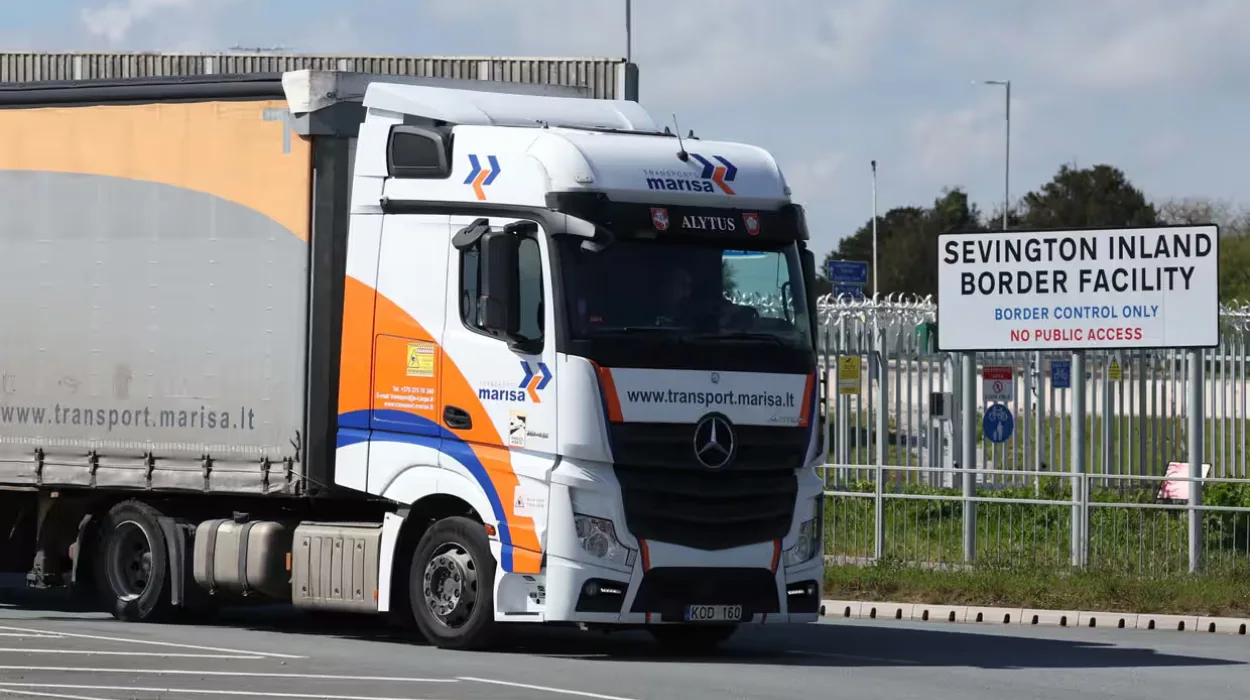UK (Parliament Politics Magazine) – British food and drink exports to the EU plunged by more than a third since Brexit, with businesses facing mounting challenges from stricter trade rules.
New figures reveal Brexit-linked trade barriers have led to a sharp decline in UK food and drink exports to the EU.
Food and Drink Federation views about UK food and drink exports
The FDF reports that whisky, chocolate, and cheese remain EU favorites, but Britain’s food exports declined to 6.37bn kg in 2024, a 34% fall from 2019.
Britain’s decline in exports since leaving the EU in January 2020 can be linked to global events like the Covid pandemic and the Ukraine war.
The federation says new trade barriers and increased complexity have led to a significant 34% drop in exports. Meanwhile, Netherlands, Germany, and Italy have seen their export numbers rise since 2020.
What is driving the surge in UK food and drink imports?
British food and drink imports reached a record level last year, as farmers faced a deepening “cashflow crisis.” A combination of tax hikes, extreme weather, and rising costs has made domestic food production more difficult. As a result, Britain is relying more on imports.
The UK’s food and drink imports surged to £63.1bn in 2024. This includes a 3.3% rise in EU imports and a 7.4% increase from non-EU countries compared to 2023.
Why are EU food imports increasing despite new border checks?
EU food imports to the UK increased in 2024 despite new border checks on animal and plant products introduced in April.
The FDF reports that Britain’s food and drink exports face stricter import regulations than those applied to European suppliers. Despite new border rules on animal and plant products introduced in April 2024, EU food imports to the UK have increased.
However, UK businesses exporting similar products still face fewer checks. Smaller UK exporters are particularly struggling to meet the EU’s stricter requirements.
FDF opinion about post-Brexit trade challenges
The FDF has urged the government to work closely with the food and drink industry to create a comprehensive trade relationship with the EU. The federation warns that persistent “unnecessary barriers” are hindering UK food and drink exports to European markets.
Balwinder Dhoot, the director of industry growth and sustainability at the FDF, stated “These latest figures show the stark reality for the UK’s 12,500 food and drink businesses, who are struggling to cope with the complexity and bureaucracy of trading with Europe.”
He added, “Government must prioritise working with the EU, and our industry, to remove as many of these barriers as possible.”
The federation hopes to secure protection for the UK’s food and drink industry in any future trade deal with the US. Their concerns come after Donald Trump’s latest tariff on wine and champagne from EU countries.
UK food exports grow in 2024
The latest data from the FDF shows that Britain’s food and drink imports reached record levels in 2024, rising to £63.9bn. This growth is largely due to the benefits of recent free trade agreements. In its first full year, Britain’s deal with Australia contributed to a 9% increase in UK exports to the country, reaching £429.1 million.
The EU remains the UK’s largest food and drink trade partner, but the US has now secured third place. British staples like tea and biscuits have seen strong growth, driving this shift.
UK export to the EU in 2023
Britain sent a £356 billion worth of goods to the EU in 2023, making up 42% of its total exports. Despite this, imports from the bloc continued to surpass exports. The figures underscore the ongoing struggles of UK trade relations with Europe.


